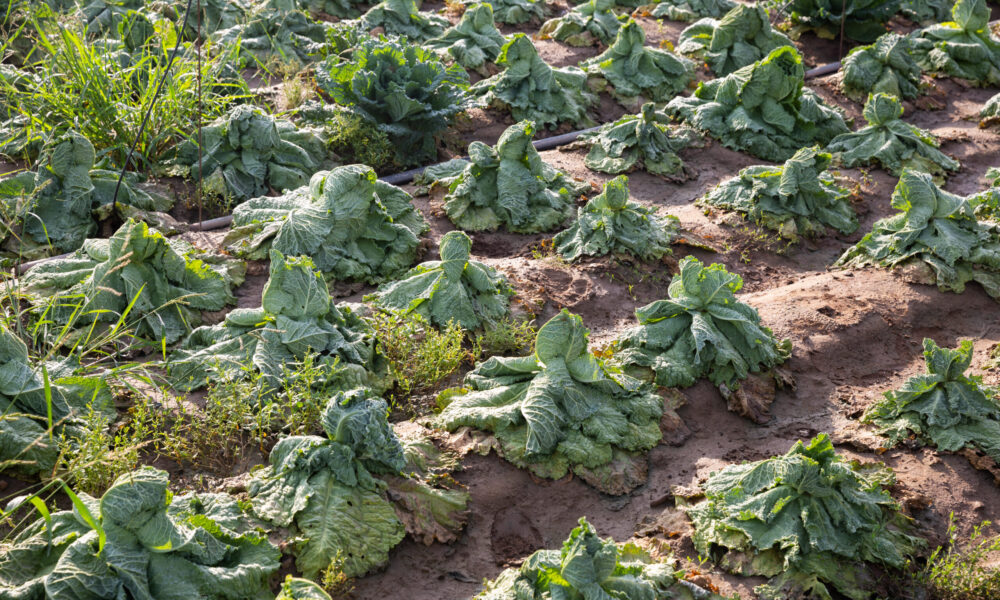After months of delay, it appears possible (though far from guaranteed!) that the food and farm bill might finally begin moving forward in Congress. This critical legislation was originally expected to be signed into law by the fall of 2023, but a chaotic schedule—and an often dysfunctional Congress—got in the way. Instead of passing a new food and farm bill for the first time since 2018, Congress instead approved a one-year extension last fall and punted the task of crafting an updated bill to the new year. Now, there’s a brief window of time in the first few months of 2024, before the presidential election heats up and campaign season is in full swing, when legislators may be able to make progress.
From conservation to nutrition to crop insurance, this mammoth legislation covers a lot of ground. The Union of Concerned Scientists (UCS) and our partner organizations have long advocated for a transformational food and farm bill—one that will not continue business as usual but help build a food system that is healthier, more sustainable, and more equitable.
One key component of a transformational food and farm bill would be a strong focus on how we address the impacts of climate change on our food system and the agricultural sector. And that’s where the US Department of Agriculture (USDA) climate hubs play a critical role.
The USDA’s climate hubs, which were first launched in 2014, represent a unique collaborative effort across the agency to connect climate-related federal research and programming with farmers and agriculture workers in the field. They operate at 10 regional locations throughout the country and are led by the Agricultural Research Service (ARS) and the Forest Service. Other USDA agencies such as the National Resources Conservation Service (NRCS), Farm Service Agency, and Risk Management Agency also play important roles.
Last spring, UCS shared with the House and Senate Agriculture Committees our list of priorities for the next food and farm bill. One of these was for Congress to codify, or permanently authorize in law, the national network of climate hubs, and to provide $50 million in annual funding for them.
Why the climate hubs are so important
The USDA climate hubs do all sorts of noteworthy things, including:
- Assessing risk and vulnerability to various production sectors and rural economies
- Supporting research and development for risk management and climate change response
- Providing science-based tools and strategies to farmers dealing with the impacts of climate change, such as drought and extreme weather
- Offering additional agricultural and land management technical support to underserved and vulnerable communities
- Providing education and outreach to farmers and others in the agriculture sector on climate science, risk management, and the impacts of climate change on their lands
It’s no secret that the impacts of climate change on agriculture have been felt more and more acutely over the past several years. The USDA’s climate hubs provide a critical link between the agency’s scientific expertise and research and the farmers and farmworkers in the field who experience these impacts on a daily basis.
According to the USDA, the climate hubs’ overarching mission is “to develop and deliver science-based, region-specific information and technologies, with USDA agencies and partners, to agricultural and natural resource managers that enable climate-informed decision-making, and to provide access to assistance to implement those decisions.”
This mission resonates deeply with UCS’s focus on delivering science-based solutions that ensure farmers and other agricultural workers will have the knowledge, tools, and assistance they need to address the impacts of climate change. The USDA climate hubs play an essential role in connecting farmers and producers around the country with research and technical assistance that can help them make the best possible decisions as stewards of their land.
How Congress can support the climate hubs
The USDA climate hubs are doing great work. However, since they haven’t yet been officially put into law, they don’t operate with the security of other federal programs that have been made permanent through legislation. The mission of the climate hubs has never been more critical, as extreme weather from droughts and flooding becomes more common and the impact of climate change on agricultural lands becomes more and more pronounced and devastating. It’s time for Congress to take action to ensure their future.
As the Senate and House of Representatives write the next food and farm bill, they have a critical opportunity to support the mission of the climate hubs. The bill needs to include language that ensures the continuation of the climate hubs by codifying their existence into law and providing strong funding for them to carry out their mission. There’s no time to waste.

